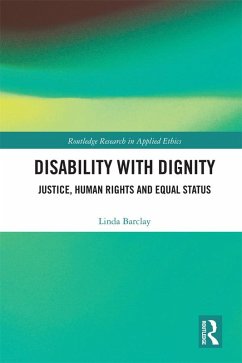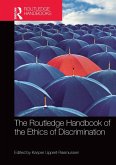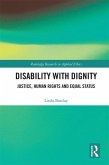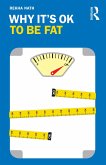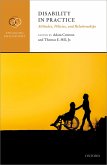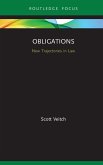Dieser Download kann aus rechtlichen Gründen nur mit Rechnungsadresse in A, B, BG, CY, CZ, D, DK, EW, E, FIN, F, GR, HR, H, IRL, I, LT, L, LR, M, NL, PL, P, R, S, SLO, SK ausgeliefert werden.
"This important book represents the best of recent work in disability and philosophy. It is grounded in urgent practical concerns, rigorously argued, and engagingly written. It makes a major contribution to the field with an integrated account of justice for people with disabilities, in which distributive fairness and equal status both play critical roles. In developing this account, Barclay offers a trenchant analysis of dignity as equal status, an analysis she employs to ground important disability rights, and to illuminate the routine social interactions that profoundly affect the status and prospects of people with disabilities. Although the book focuses on disability, its analyses of relational justice and dignity make a significant addition to the broader literature in political and moral philosophy." - David Wasserman, The Department of Bioethics, National Institute of Health

